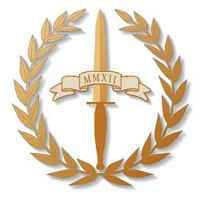National Defense Briefs – September 17, 2014
September 17, 2014By W. Thomas Smith Jr.
National Defense Briefs is a series aimed at informing readers with timely military and homeland security news updates, trends, definitions, and short commentaries. Defense issues are inextricably connected to business. In that, MidlandsBiz.com presents the “National Defense Briefs” that matter.
- “Any U.S. ground-combat deployment in Iraq is likely to be small and focused on air-strike support,” says Anna Boyd, director of Middle East Analysis at IHS. (Publically traded IHS was originally Information Handling Services). According to Boyd, “Despite the risk of ‘mission creep’, it is still highly unlikely in the next year that [the White House] will authorize large-scale ground troop deployments that would risk sparking an anti-U.S. Shia-led insurgent campaign involving the Peace Brigades and other remobilized Shia militias such as Asaib al-Haqq. Large-scale deployments would also undermine the credibility of Prime Minister Haider al-Abadi’s new government among Sunni and Shia political factions and hinder attempts to mobilize local Sunni forces against the Islamic State in northwest Iraq. It is much more likely that [the White House] could authorize deployment of small numbers of special forces units to help identify targets for U.S. airstrikes. Meanwhile the joint AQIM/AQAP statement is likely to have little effect in uniting Sunni rebel efforts, given the Islamic State’s policy of avoiding alliances with other groups except those that have formally submitted to it.”
- AQIM is the abbreviation for Al Qaeda in the Lands of the Islamic Maghreb (or Al Qaeda in the Islamic Maghreb). AQAP is Al-Qaeda in the Arabian Peninsula.
- ISIS is “blending into urban areas [in Iraq] to blunt effect of airstrikes,” says U.S. Army Gen. Martin Dempsey, chairman of the Joint Chiefs of Staff. “What we’ve seen so far is a lot of the black flags have come down, a lot of the convoys have dispersed, a lot of the assembly areas have been moved into urban areas. We’ve seen an increase in the number of improvised explosive devices and suicide attacks.”
- Referring to “broader targets the Pentagon will be allowed to strike” when the overall war plan is approved by both the White House and the Iraqi government, Dempsey added, “I think you’ll see the aperture open a little bit … whether it’s fixed facilities, whether it’s high-value individuals. That is the next step.” Dempsey says he might “in the future recommend a combat role” for U.S. ground troops in Iraq.
- ISIS Fast Facts at CNN – http://www.cnn.com/2014/08/08/world/isis-fast-facts/.
- Foreign Terrorist Organizations are foreign organizations that are designated by the U.S. State Dept. The current list of Foreign Terrorist Organizations – http://www.nctc.gov/site/other/fto.html.
- For U.S. Navy SEALs, severe training builds trust – http://www.tennessean.com/story/money/2014/09/06/navy-seals-can-teach-trust/15230583/.
- “In an aggressive move to reclaim its maritime expeditionary heritage after 13 years of grinding land-based combat and counterinsurgency/nation-building, the Marine Corps has published a new capstone conceptual document that charts a new course [Expeditionary Force 21] into the future,” according to the U.S. Naval Institute. “Expeditionary Force 21 draws heavily on the Corps’ historic roles as a forward-deployed or fast-responding force willing and able to perform a wide range of duties, from humanitarian assistance/disaster relief to enhanced security for U.S. embassies and interests, to swift, small-scale raids or assaults to stifle emerging conflicts, up to forcible entry amphibious attacks to pave the way for, or as part of a major joint combat operation.” [Read – http://news.usni.org/2014/09/08/u-s-marine-corps-aggressive-move-amphibious-future]
 – W. Thomas Smith Jr. – a former U.S. Marine rifleman – is a military analyst and partner with NATIONAL DEFENSE CONSULTANTS, LLC. Visit him at http://uswriter.com.
– W. Thomas Smith Jr. – a former U.S. Marine rifleman – is a military analyst and partner with NATIONAL DEFENSE CONSULTANTS, LLC. Visit him at http://uswriter.com.














